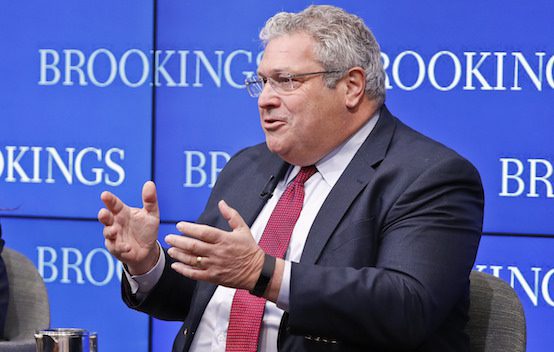The ‘Springtime for Strongmen’ and the Myth of Retrenchment

As he often does, Robert Kagan makes a very questionable claim about U.S. foreign policy:
Autocracy flourished in 2018 because when Washington pursues a so-called realist policy of global retrenchment, it looks for dictators it thinks it can rely on.
Kagan’s argument would be slightly more persuasive if the U.S. were pursuing a policy of global retrenchment. Since that isn’t happening, his explanation doesn’t make any sense. The argument would also be a little stronger if the U.S. didn’t look for dictators it thinks it can rely on at all times. If the U.S. isn’t retrenching, and if the U.S. is always in the market for cooperative authoritarian rulers, those things can’t be major reasons why authoritarian governments have been gaining ground in recent years. There has been an increase in illiberal democracies, one-party states, and authoritarian regimes over the last 10-15 years, and most of that has happened in the wake of the economic and political shocks caused by the 2008 financial crisis. Middle-class voters in many democratic states started rejecting mass democracy more than a decade ago and more because they were opposed to the empowerment of poorer voters, and that was already happening when Bush was still prattling about the “freedom agenda.”
Kagan is eager to tie the fortunes of liberal democracy around the world to the extent of U.S. involvement abroad, but the former doesn’t actually depend on the latter. He has to fall back on the myth of “global retrenchment” by the U.S. when no such thing has happened, because he needs that to be true to account for the growth of authoritarianism (or what he anachronistically insists on calling autocracy). It is essential to Kagan’s larger case for a hyperactivist U.S. foreign policy that liberal democracy around the world and U.S. activism are inextricably intertwined, but they aren’t. Kagan’s analysis doesn’t hold up because authoritarianism may wax or wane in various places around the world no matter what the U.S. is or isn’t doing abroad, and those changes are almost entirely beyond our control.
The biggest problem with Kagan’s story is that it mostly ignores the political conditions in the countries where authoritarian strongmen are consolidating power and in the countries where they have been losing it. U.S. support for many authoritarian rulers is undesirable and should be ended, but it doesn’t account for the intensifying repression in Saudi Arabia and Egypt. The U.S. has backed the Egyptian dictatorship and Saudi monarchy for decades, so that doesn’t tell us why the Sisi dictatorship and Mohammed bin Salman’s de facto rule are so much more repressive and abusive than their predecessors’. That intensifying repression is one of the reasons why the U.S. should stop supporting these regimes, but we shouldn’t assume that the repression will lessen once our support is withdrawn. Ethiopia is a recent counterexample to the trend of growing authoritarianism, and the reasons for that are internal to Ethiopia.
Kagan is so determined to lay the “springtime for strongmen” at the door of the “so-called realist policy of global retrenchment” that he isn’t paying attention to local causes for these political changes that have little or nothing to do with us. That may be useful for promoting his alarmism about the return of “the jungle,” but his explanation for why these things have been happening is based on a fantasy.
Comments